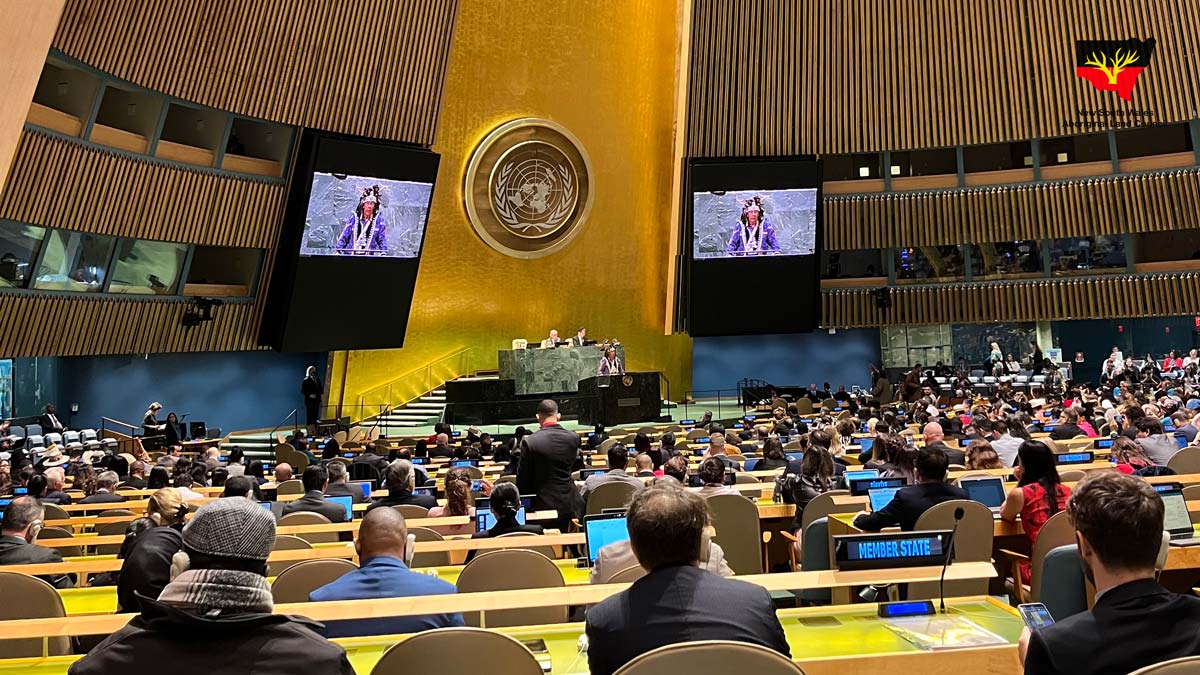
UNPFII – A Global Platform for Indigenous People
Established in 2000 as an advisory body to the UN Economic and Social Council (ECOSOC), the United Nations Permanent Forum on Indigenous Issues (UNPFII) is dedicated to addressing Indigenous issues such as economic and social development, culture, the environment, health, and human rights.
It represents the highest-level international platform for Indigenous peoples to speak directly to world leaders, shape global policy, and drive international accountability.
NSWALC holds special consultative status with the ECOSOC.
How UNPFII aligns with NSWALC’s Mission
NSWALC continues to advocate both domestically and internationally in important areas including Land Rights, water rights, improved housing, human rights, Treaty and better protections for Aboriginal cultural heritage.
Our regular attendance at and submissions to the UNPFII ensure that Aboriginal people in NSW are heard on a global stage – that our stories, solutions, and struggles inform international standards, and that Australia is held accountable to those standards.
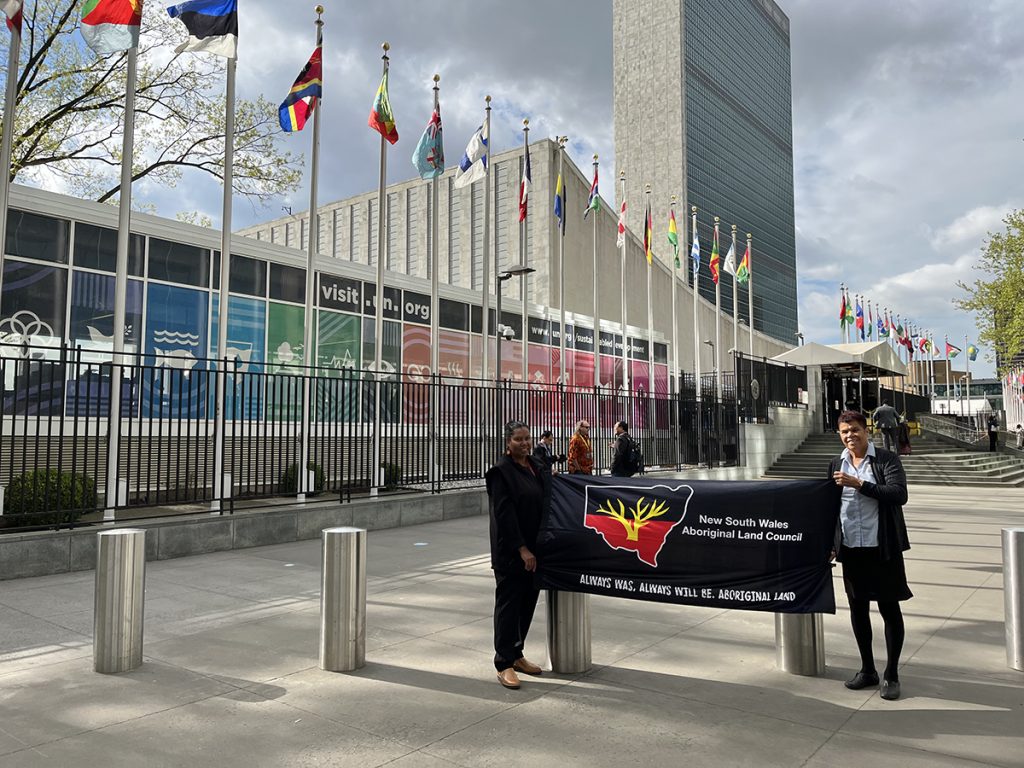
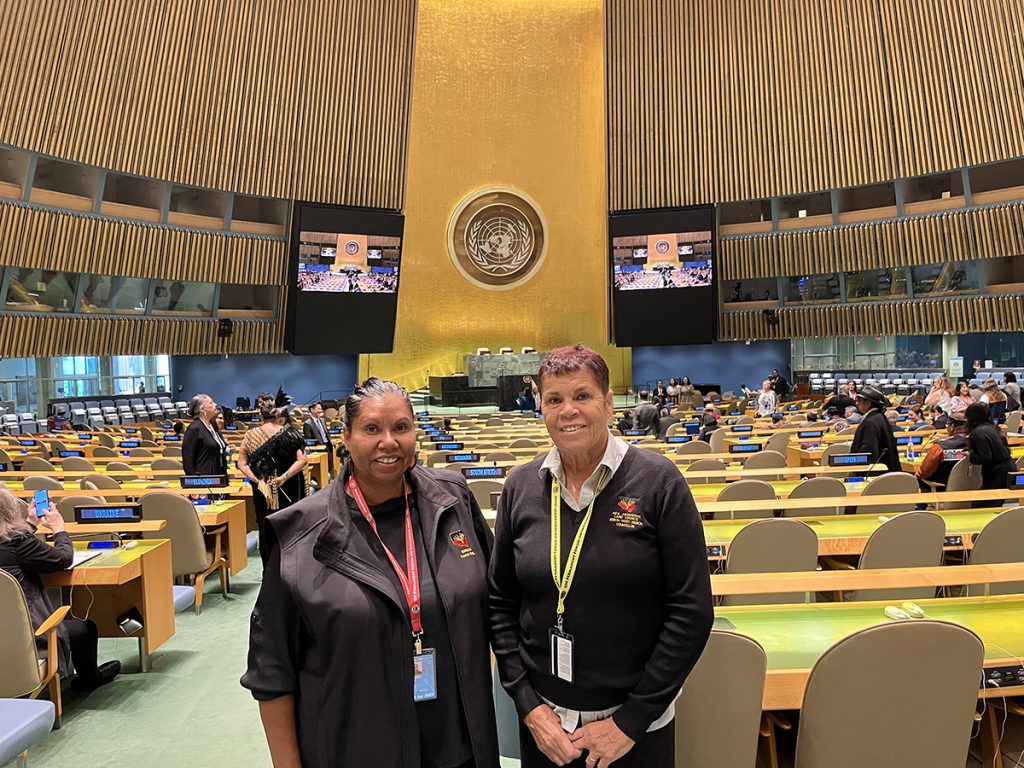
Continuing the Spirit of the Freedom Ride
NSWALC’s participation in the UNPFII draws from a proud legacy of grassroots activism in the 1960’s and beyond, including the 1965 Freedom Ride, led by Charles Perkins, which toured regional NSW to expose racism and injustice.
The Freedom Riders took our truth to the streets and shone a light on the marginalisation of Aboriginal people in NSW country towns. It forced a national reckoning and is credited with the successful 1967 Referendum that removed discriminatory references to Aboriginal people in the Constitution, and allowed the Federal Government to pass legislation to benefit Aboriginal people. It also provided inspiration for the 1966 Wave Hill Walk-Off (Gurindji strike) over wages and Land Rights which ten years later, led to the passing of the groundbreaking Aboriginal Land Rights (Northern Territory) Act 1976. The new law gave inalienable rights over freehold title to Aboriginal people in the NT, via land councils.
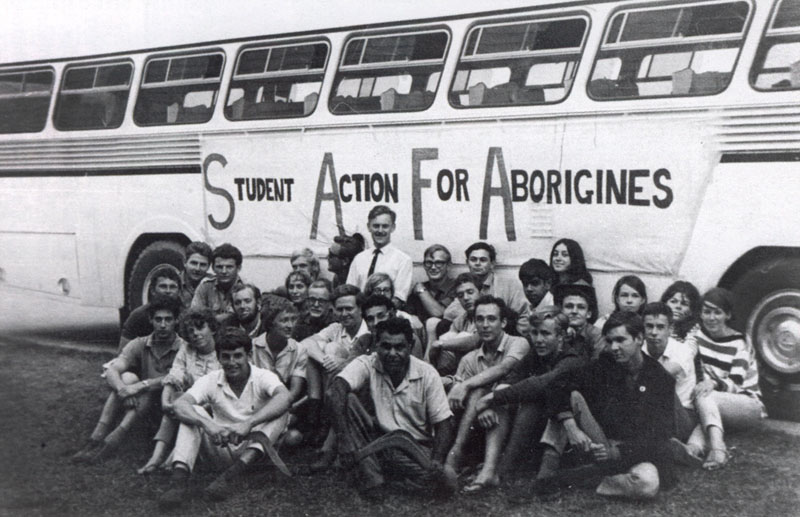
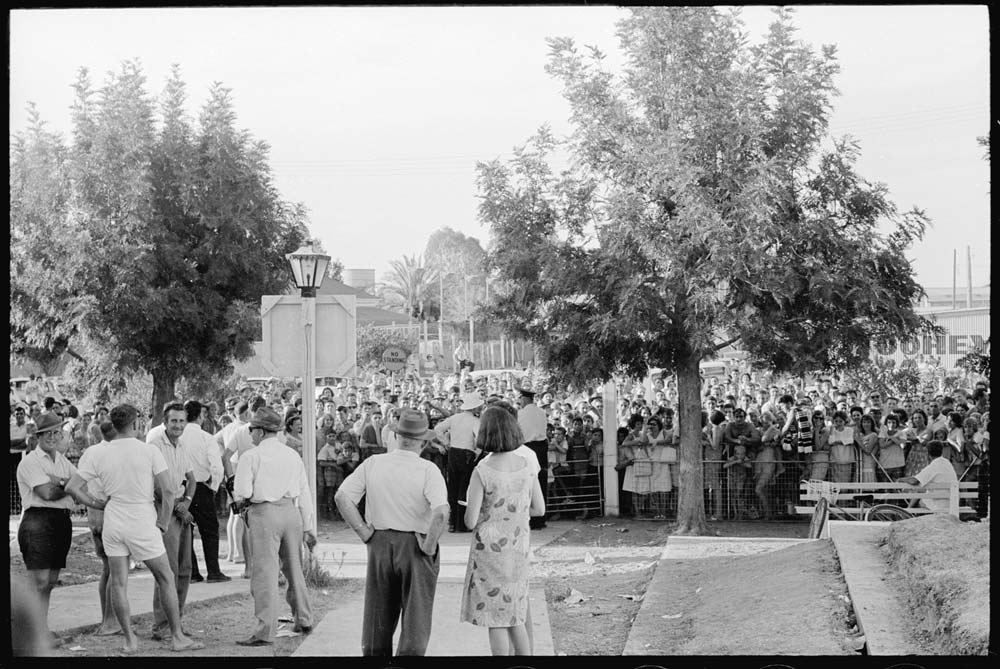
The seven-year Gurindji strike was bolstered by the 1972 establishment of the Aboriginal Embassy in Canberra, set up to protest the-Federal Government’s approach to Aboriginal Land Rights. Michael Anderson, Billy Craigie, Bertie Williams and Tony Coorey planted a beach umbrella opposite Parliament House and later issued a list of demands including rights to homelands, compensation for lands not returned, and protection of sacred sites.
Their determination and commitment gathered momentum and five years later, in 1977, more than 200 Land Rights champions gathered at the Black Theatre in Redfern to assert their right to control their land, make their own decisions, and elect their own leaders. This pivotal meeting led to the formation of a non-statutory NSW Aboriginal Land Council and ultimately the Aboriginal Land Rights Act 1983 (NSW).
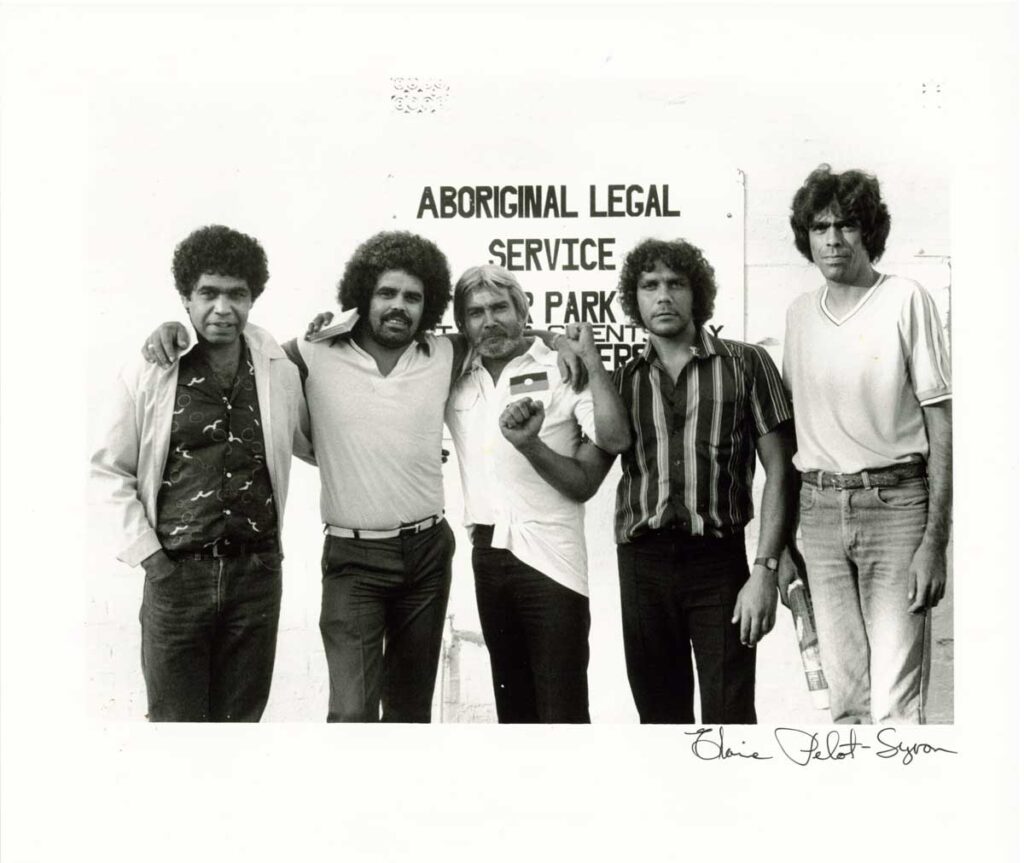
NSWALC at UNPFII in 2025
Today, the NSWALC Councillors carry that legacy forward by taking our truth to the world. By participating in the UNPFII, they ensure that the history and experiences of our communities – from housing struggles and cultural heritage protection to Land Rights and economic empowerment – are part of a global movement.
NSWALC’s presence influences international Indigenous frameworks and brings those principles back to strengthen our work here in NSW.
The Twenty Fourth Session of the Permanent Forum will focus on identifying good practices and addressing challenges. NSWALC will urge the UNPFII and Australian Governments to:
- Address barriers to Land Rights and Indigenous economic participation
- Support Aboriginal education
- Work in genuine partnership to deliver on Closing the Gap commitments
- Prioritise the intersection of climate action and Indigenous land management
- Build on our self-determining Aboriginal community controlled organisations
- Implement a partnership approach to developing a national United Nations Declaration on the Rights of Indigenous Peoples (UNDRIP) implementation plan with Aboriginal and Torres Strait Islander peoples, embedding the Declaration into laws, policies, and governance structures.
As long as our people continue to face barriers to justice, recognition, and control over our futures, we must remain active in every space where our rights can be defended.
Our Submissions at UNPFII 2025
- Item 3: Implementing UNDRIP in Member States and the UN System
- Item 4: Discussion on the six mandated areas of the Permanent Forum
- Item 5(d): Human Rights Dialogue with the Special Rapporteur on the Rights of Indigenous Peoples and the EMRIP
- Item 5(g): Thematic Dialogue on the Financing of Indigenous Peoples’ Work and Participation
- Item 6: Future work of the Permanent Forum, including issues considered by the Economic and Social Council, the outcome document of the World Conference on Indigenous Peoples and emerging issues
